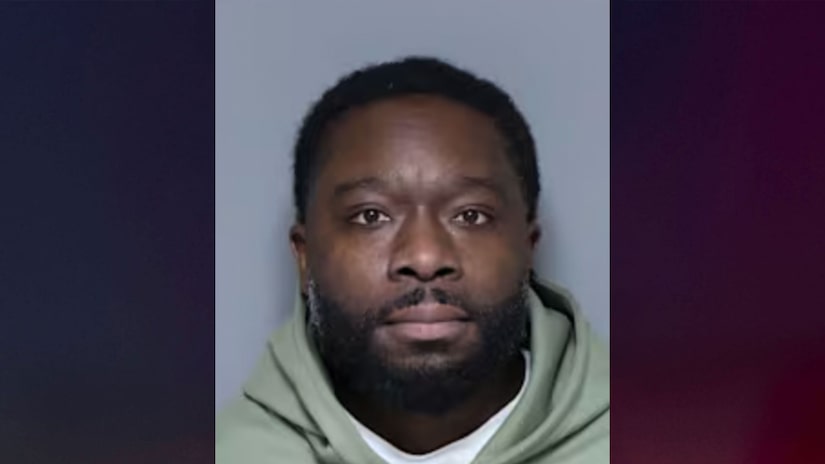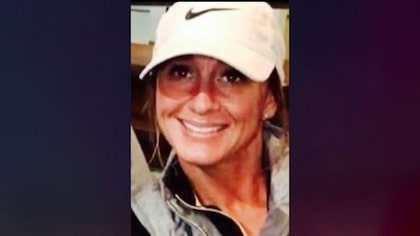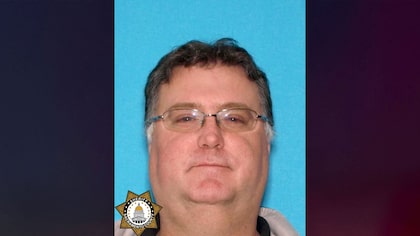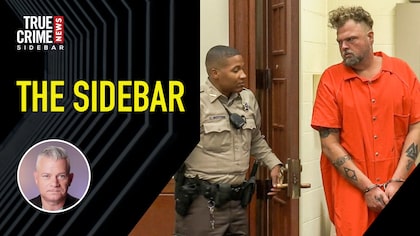Wrongful Conviction: The Exoneration of Willie T. Donald - TCDPOD
12/22/2020 10:40 am PST
Dec. 23, 2020 (TCD) --
In this week's True Crime Daily Podcast: We have a special episode. Our guest is Willie "Timmy" Donald, an Indiana man wrongly convicted of robbery and murder who served more than 20 years in prison before he was exonerated (31:08). We discuss how Mr. Donald went car-shopping with family one night in 1992 and ended up in a police lineup, how police and prosecutors let the wrong man go to prison -- and what has changed since.
Also joining us is Willie T. Donald's attorney, Thomas Vanes; and Dr. Nicky Jackson, coordinator of the Criminal Justice Program at Purdue University Northwest in Indiana, who is the creator and chair of the Willie T. Donald Exoneration Advisory Coalition. Criminal defense attorney Alison Triessl co-hosts with Ana Garcia.
GoFundMe: Righting the Wrong of a Wrongful Conviction - GoFundMe
Purdue University Northwest: The Willie T. Donald Exoneration Advisory Coalition
YouTube: Wrongful Conviction: The Exoneration of Willie T. Donald - TCDPOD

THE CASE
Willie T. Donald served 23 years, 10 months and 25 days in prison in Indiana for crimes he did not commit. And some are questioning how police and prosecutors let that happen.
THE CRIMES
On Feb. 27, 1992, there were five armed robberies in the Glen Park area of Gary, Indiana, a city in northwest Indiana that borders Chicago on its west side.
In each of the robberies, the suspect was described by victims as a black man with a thin build and a scarred face who brandished a gun.
In one of the robberies, the suspect entered Rhonda Williams' house and threatened her with a gun. She gave the man $50 cash, and he left.
Later the same evening, 30-year-old Bernard Jimenez was arriving home with his fiancée, Kimerly Belinsky, and their daughters, ages 1, 6 and 7.
The suspect threatened the family outside the front of their house. Jimenez had about $20 in cash on him, which he threw on the ground for robber, and told the robber to go in the house and take whatever he wanted. The robber wanted more. Jimenez pleaded with him to let them go, but the attacker threatened the little girls, holding a gun to the face of the 1-year-old daughter. Jimenez fought back, throwing a small wooden picnic table in the yard at the attacker, and struggled with the man, at which point the suspect shot Jimenez twice, once in the chest and once in the head. Jimenez died in a hospital an hour later. The attacker fled.
THE INVESTIGATION
Police showed victims of the Feb. 27 armed robberies a mugshot photo album in hopes of identifying the attacker.
Each of the victims described the attacker as a thin black man with scarring or "bumps" on his face.
Two of the robbery victims from that night identified Willie T. Donald from the mugshot album. Kimerly Belinsky said she was "not sure," but picked his photo. Rhonda Williams also picked his photo.
Willie Donald has a different body type, and does not have facial scarring.
Williams later said there had been some talk between the two women in picking Donald's photo from the mugshot album.
Willie T. Donald did not have a criminal record. The only reason his photo appeared in the mugshot album was because of an incident in the late 1980s. Donald and a friend borrowed a car belonging to the friend's uncle. The car was parked, and the ignition was disturbed, as Donald describes it, so police thought the car was stolen. Police took Donald into custody on suspicion of auto theft. Later, the friend's uncle brought paperwork to police showing he was the car's owner. Donald was not charged, but his picture remained in the system, leading to the 1992 false identifications, which then led to a live in-person police lineup.
Kimerly Belinsky and Rhonda Williams both identified Donald in the live lineup that police had arranged the same day as the mugshot album was presented.
However, at least three other robbery victims from the same day viewed the live lineup and did not pick out Willie Donald.
A Gary Police officer was also robbed on the night in question. She had been robbed later the same night as Williams and Belinsky were -- and the robber reportedly indicated to her that he had already shot someone earlier that night. The retired female officer cleared Donald in the in-person lineup.
Police searched Donald's home after he was identified and placed under arrest, but officers did not find any evidence -- none of the robbery money, none of the clothing described in the robberies, and no gun.
There was no physical or forensic evidence linking Donald to either crime.
But Donald was subsequently charged with first-degree murder (for Jimenez's death) and two counts of armed robbery (in the Jimenez and Williams incidents).
THE TRIAL
Willie T. Donald went to trial in June 1992 in Lake County, Indiana.
Both Kimerly Belinsky and Rhonda Williams testified at the trial that Willie Donald was the gunman.
But Donald's sister and her fiancé (now her husband) both testified that on the night of the crimes, they were shopping for a new car with Willie Donald in Merrillville and Crown Point, south of the city of Gary.
Car salesmen confirmed the couple was shopping that night, and said a third male individual was with the couple while they shopped -- but neither of the two salesmen could positively identify Donald as that third person.
On June 12, 1992, the jury convicted Willie T. Donald of first-degree murder and two counts of armed robbery. Donald was sentenced to 60 years in prison.
THE DETAILS
In 1993, the year following the trial, Donald's defense team learned Rhonda Williams, one of the home-invasion victims, had called police to report she had just seen the suspect on her street near her house -- three days after the crimes.
At the time of Williams' call (three days after the crimes), police were investigating Donald, but had not yet arrested him. Detectives were reportedly verifying his timecards at his workplace for the time of the crime; Donald was present with them while that was happening.
Detectives verified that Donald was at work having lunch with co-workers during the time of Rhonda Williams' street sighting days later, and determined he could not have been the person she saw near her home.
But Williams' call was never disclosed prior to or during Donald's trial.
In 1994, Rhonda Williams said in a Motion to Correct Errors (MCE) hearing that the person she saw on the street days after the crime -- who was not Donald -- resembled her robber, and that she called police to give a general description. But she did not recant her identification of Donald until years later.
A post-conviction motion to vacate Donald's conviction was denied.
THE EXONERATION
In 2006, the Medill Innocence Project (a project of the Northwestern University Medill School of Journalism in Evanston, Ill., just north of Chicago) investigates the case, and is later joined by the Chicago Innocence Project.
Evidence uncovered in that investigation led to a possible alternate suspect: 18-year-old Lavelle Thompson, a known street gang member in Gary who had facial acne scars. But Thompson had been murdered in the intervening years.
In 2009, Rhonda Williams raises questions about the police identification process, and describes being led by at least one officer into confirming Donald as the suspect. She said that during the live lineup, she noted Donald was taller and bigger than her robber, but a detective told her Donald was arrested across the street from her house (Donald was actually arrested in his own home), and Williams said the detective "convinced me I had picked the right guy."
The prosecution in the case made an offer to Willie T. Donald: If he would drop his legal challenge to the murder conviction, then the prosecution would drop the charges related to Rhonda Williams -- and then he could go home with time served. But that agreement would have let the murder conviction stand on his record. Donald chose to stay in prison and fight the conviction, rather than accepting the deal and having people assume he was guilty of the murder due to the deal.
Defense attorney Thomas Vanes, 2016: "Donald had a chance to go home in 2013. The prosecutor was willing to set aside the (Williams) robbery conviction if he quit fighting the murder conviction."
On January 25, 2016, a Lake County Circuit Court judge vacated Donald's convictions and granted him a new trial. Then, due to prosecutorial misconduct, the judge declares the original trial was unconstitutional.
Two days later, on Jan. 27, 2016, the Lake County State's Attorney dismisses charges, and Willie T. Donald is released from prison.
SOURCES
- Overview: TIMELINE - Times of Northwest Indiana
- Gary man wins murder reversal after 24 prison years - Times of Northwest Indiana
- After 24 years wrongly behind bars, still no visible scars - Chicago Tribune (op-ed)
- Shedding light on wrongful convictions - 10/25/18, 10/6/20
- A Gary man was found innocent after 24 years in prison. Indiana didn't help him. - Indy Star 1/22/17
- The age of innocence is over - Chicago Reader 5/29/12
- A whole new world for once-convicted Gary man - NWI 4/6/16
- Gary man wins murder reversal after 24 prison years - NWI 2/3/16
- Jailed for murder, Gary man fights to prove he is innocent - NWI 8/16/09
GoFundMe: Righting the Wrong of a Wrongful Conviction - GoFundMe
Purdue University Northwest: The Willie T. Donald Exoneration Advisory Coalition
TRUE CRIME DAILY: THE PODCAST covers high-profile and under-the-radar cases SUBSCRIBE: APPLE PODCASTS / SPOTIFY / STITCHER / GOOGLE PODCASTS / YOUTUBE














